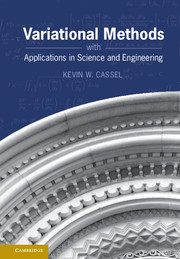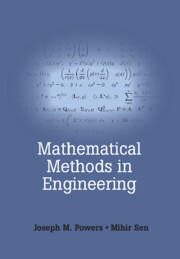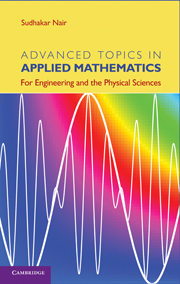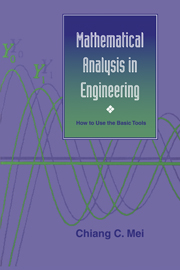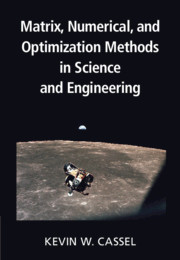Variational Methods with Applications in Science and Engineering
There is a resurgence of applications in which the calculus of variations has direct relevance. In addition to application to solid mechanics and dynamics, it is now being applied in a variety of numerical methods, numerical grid generation, modern physics, various optimization settings and fluid dynamics. Many applications, such as nonlinear optimal control theory applied to continuous systems, have only recently become tractable computationally, with the advent of advanced algorithms and large computer systems. This book reflects the strong connection between calculus of variations and the applications for which variational methods form the fundamental foundation. The mathematical fundamentals of calculus of variations (at least those necessary to pursue applications) is rather compact and is contained in a single chapter of the book. The majority of the text consists of applications of variational calculus for a variety of fields.
- Emphasis on modern applications
- Provides a concise treatment of the calculus of variations
- Derivation of the ubiquitous Hamilton's principle directly from the first law of thermodynamics
- Includes derivation of the governing equations of many discrete and continuous phenomena from Hamilton's principle
Reviews & endorsements
'The current book is an attractive fresh look at the subject by a professor of mechanical and aerospace engineering … Most chapters have a modest number of exercises. There is a very nice bibliography.' Bill Satzer, MAA Reviews
'This well-written book contains a large amount of material … will also be useful for scientists from application areas, in particular, those from engineering and physics.' Vicenţiu D. Rădulescu, Mathematical Reviews
'Overall, the text is clear and provides an excellent introduction to the calculus of variations for engineers and applied scientists looking for a concise exposition of the theory with numerous applications. Several historical notes appear throughout the text, which helps students understand the overall framework of variational calculus.' Joel Storch, IEEE Systems Control Magazine
Product details
No date availableAdobe eBook Reader
9781107069558
0 pages
0kg
112 b/w illus. 12 tables 108 exercises
Table of Contents
- 1. Preliminaries
- 2. Calculus of variations
- 3. Rayleigh-Ritz, Galerkin, and finite-element methods
- 4. Hamilton's principle
- 5. Classical mechanics
- 6. Stability of dynamical systems
- 7. Optics and electromagnetics
- 8. Modern physics
- 9. Fluid mechanics
- 10. Optimization and control
- 11. Image processing and data analysis
- 12. Numerical grid generation.

